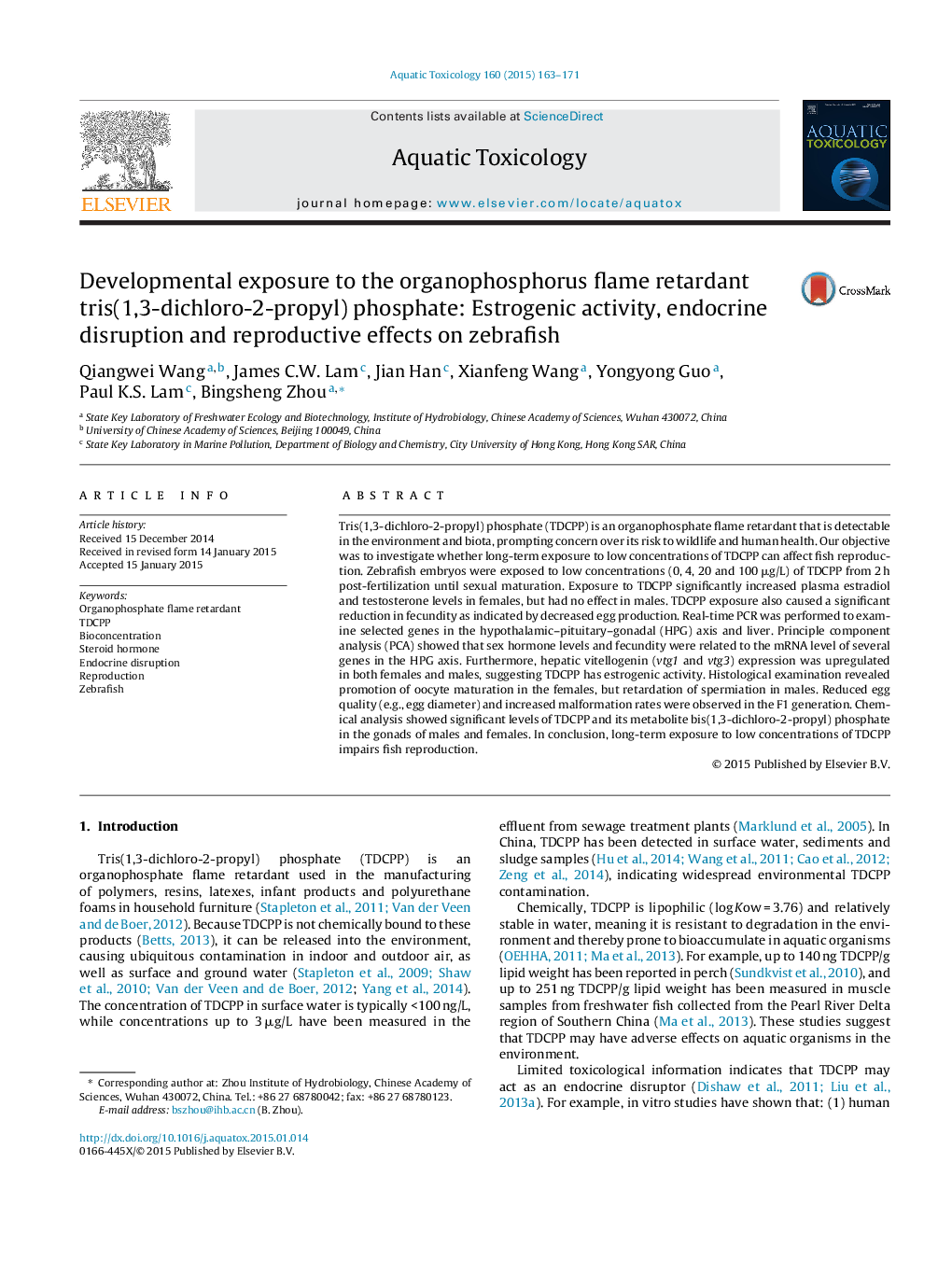| Article ID | Journal | Published Year | Pages | File Type |
|---|---|---|---|---|
| 6382253 | Aquatic Toxicology | 2015 | 9 Pages |
Abstract
Tris(1,3-dichloro-2-propyl) phosphate (TDCPP) is an organophosphate flame retardant that is detectable in the environment and biota, prompting concern over its risk to wildlife and human health. Our objective was to investigate whether long-term exposure to low concentrations of TDCPP can affect fish reproduction. Zebrafish embryos were exposed to low concentrations (0, 4, 20 and 100 μg/L) of TDCPP from 2 h post-fertilization until sexual maturation. Exposure to TDCPP significantly increased plasma estradiol and testosterone levels in females, but had no effect in males. TDCPP exposure also caused a significant reduction in fecundity as indicated by decreased egg production. Real-time PCR was performed to examine selected genes in the hypothalamic-pituitary-gonadal (HPG) axis and liver. Principle component analysis (PCA) showed that sex hormone levels and fecundity were related to the mRNA level of several genes in the HPG axis. Furthermore, hepatic vitellogenin (vtg1 and vtg3) expression was upregulated in both females and males, suggesting TDCPP has estrogenic activity. Histological examination revealed promotion of oocyte maturation in the females, but retardation of spermiation in males. Reduced egg quality (e.g., egg diameter) and increased malformation rates were observed in the F1 generation. Chemical analysis showed significant levels of TDCPP and its metabolite bis(1,3-dichloro-2-propyl) phosphate in the gonads of males and females. In conclusion, long-term exposure to low concentrations of TDCPP impairs fish reproduction.
Keywords
Related Topics
Life Sciences
Agricultural and Biological Sciences
Aquatic Science
Authors
Qiangwei Wang, James C.W. Lam, Jian Han, Xianfeng Wang, Yongyong Guo, Paul K.S. Lam, Bingsheng Zhou,
